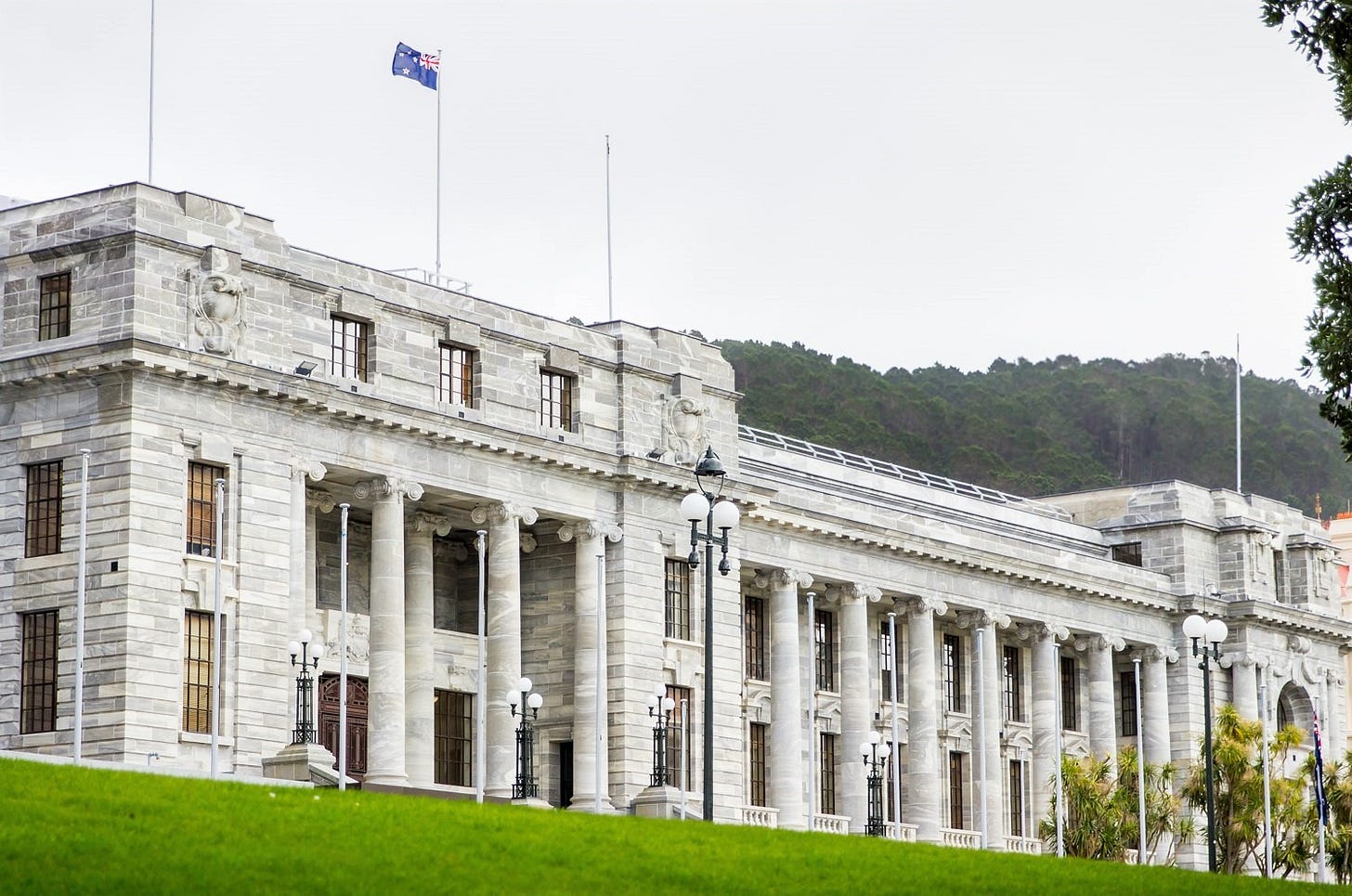NZ Right-Wing Government Bans Puberty Blockers: "Sacrificing A Generation Of Trans Youth"
The far-right coalition partner NZ First took a victory lap, calling the decision a "win in the war on woke."
On Wednesday, New Zealand’s government—under growing pressure from its far-right flank—made the dramatic decision to ban new prescriptions of puberty blockers for transgender youth. The move, framed by the governing right-wing coalition as deference to the United Kingdom’s “Cass Review,” a document shaped under advisement from members of anti-LGBTQ+ hate groups, makes New Zealand the latest country to impose severe restrictions as anti-transgender panic spreads globally, following political forces in the United States and United Kingdom. Although the ban was expected to be announced by the health minister, the far-right NZ First party preempted the rollout, declaring it a victory in the “war on woke” and making clear that the decision was a political concession rather than a medically grounded one.
“That New Zealand First announced this news three hours before the Minister of Health shows the way this care has been politicised, and how politics have been prioritised over the wellbeing of New Zealand children,” said Avery Zavoda of the Professional Association for Transgender Health Aotearoa in a press release.
In an early post to the New Zealand First party website, the far-right party in the coalition government, the party stated, “Today, sanity won another battle in the war on woke. After years of dangerous ideological experimentation pushed by radical activists and rubber-stamped by weak politicians, the New Zealand Government has officially banned puberty blockers for children. This is what happens when you back a party that actually delivers… While other parties can’t even define what a woman is, we’ve stood up for families, for truth, and for children.”
The language used in the NZ First announcement closely mirrors far-right language used in the United States and TERF language used in the United Kingdom, a clear indication that the country has imported anti-transgender politics from abroad.
Shortly after, the New Zealand government released an official press release stating that the decision was merely about “putting in place stronger safeguards,” adding that the ban would remain in place until the United Kingdom could complete a clinical trial on puberty blockers. Notably, this clinical trial is not expected to be complete until 2031 according to PATHA, who said of the decision, “In no other area of care would life-saving medication be withheld from a vulnerable population for six years. This will have a traumatic impact on a generation of transgender children.”
“By pinning the resumption of prescribing to a UK trial result expected in 2031, the Government has effectively sacrificed a generation of trans youth. They are demanding a level of evidence for trans healthcare that they do not demand for hundreds of other treatments routinely used in paediatrics,” said civil rights organization Rights Aotearoa in a press release.
The decision is the latest in a wave of policies citing the United Kingdom’s Cass Review to justify political bans on gender-affirming care for transgender youth. Although the review was initially presented as a neutral scientific assessment, reporting has since revealed that it was advised on by several members of anti-LGBTQ+ hate groups who held influential roles in its development. Major medical organizations and peer-reviewed researchers have sharply criticized the document for fundamental failures, with a recent article in The Medical Journal of Australia stating that it “echoes fallacies promoted by anti-trans disinformation” and noting “striking” internal contradictions throughout. Despite these flaws, the Cass Review has already been wielded by Republicans in the United States to justify care bans of their own.
Gender-affirming care saves lives. A Cornell review of more than 51 studies found that such care significantly improves the mental health of transgender people. One major study reported a 73 percent drop in suicidality among trans youth who began treatment; another found a 40 percent reduction in actual suicide attempts in the previous year. Research published in the Journal of Adolescent Health in April 2024 showed puberty blockers sharply reduced depression and anxiety. A German review backed by 27 medical organizations endorsed gender-affirming care for youth, and a recent French medical consensus did the same. The evidence has driven a historic resolution from the American Psychological Association—representing 157,000 members—formally condemning bans on trans care.
As for what’s next for transgender New Zealanders, “This will undoubtedly end up in court - very quickly as the subject of a Judicial Review,” stated Paul Thistoll, founder of Rights Aotearoa, predicting a strong foundation for a challenge. Meanwhile, the new rules are expected to take effect on December 19th of this year.



Damn, well there goes NZ as an option for a safe place to flee to when things get too bad here…..
This shows that right-wing anti-trans propaganda is a worldwide phenomenon, and no place can be considered truly safe. Also - bans on minors’ care is usually a stepping stone toward civil rights and medical care restrictions for adults